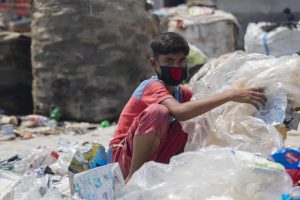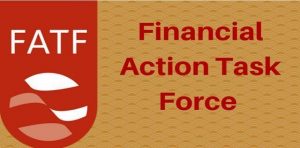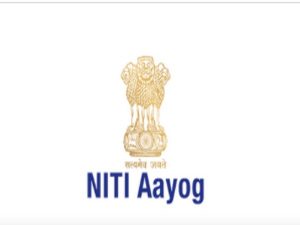Today Current Affairs: 23rd October 2021 for UPSC IAS exams, State PSC exams, SSC CGL, State SSC, RRB, Railways, Banking Exam & IBPS, etc
Table of Contents
UDAN scheme:

The Government of India has identified 21st October as UDAN Day, the day on which the scheme document was first released.
- The scheme is aimed at enhancing connectivity to remote and regional areas of the country and making air travel affordable.
- It is a key component of Centre’s National Civil Aviation Policy led by Prime Minister Narendra Modi and launched in June 2016.
- Under the scheme, nearly half of the seats in Udan flights are offered at subsidised fares, and the participating carriers are provided a certain amount of viability gap funding (VGF) – an amount shared between the Centre and the concerned states.
- The scheme will be jointly funded by the central government and state governments.
- The scheme will run for 10 years and can be extended thereafter.
UDAN 4.0:
- The 4th round of UDAN was launched in December 2019 with a special focus on North-Eastern Regions, Hilly States, and Islands.
- The airports that had already been developed by Airports Authority of India (AAI) are given higher priority for the award of VGF (Viability Gap Funding) under the Scheme.
- Under UDAN 4, the operation of helicopters and seaplanes is also been incorporated.
BharatNet Project:

Tamil Nadu FibreNet Corp signs agreement for BharatNet project implementation.
- The project aims at providing 1 Gbps bandwidth connectivity to all Gram Panchayats.
- BharatNet Project was originally launched in 2011 as the National Optical Fibre Network(NOFN) and renamed as Bharat-Net in 2015.
- It seeks to provide connectivity to 2.5 lakh Gram Panchayats (GPs) through optical fibre.
- It is a flagship mission implemented by Bharat Broadband Network Ltd. (BBNL).
- The objective is to facilitate the delivery of e-governance, e-health, e-education, e-banking, Internet and other services to rural India.
The larger vision of the project is:
- To establish a highly scalable network infrastructure accessible on a non-discriminatory basis.
- To provide on demand, affordable broadband connectivity of 2 Mbps to 20 Mbps for all households and on demand capacity to all institutions.
- To realise the vision of Digital India, in partnership with States and the private sector.
- The project is a Centre-State collaborative project, with the States contributing free Rights of Way for establishing the Optical Fibre Network.
- The entire project is being funded by Universal service Obligation Fund (USOF), which was set up for improving telecom services in rural and remote areas of the country.
New Gene Editing Technique:

Even as the Centre investigates allegations that unauthorised genetically modified (GM) rice was exported to Europe, it is yet to decide on a research proposal from its own scientists which would allow plants to be genetically modified without the need for conventional transgenic technology.
- Scientists at the Indian Agricultural Research Institute are in the process of developing resilient and high-yield rice varieties using such gene editing techniques, which have already been approved by many countries, and they hope to have such rice varieties in the hands of the Indian farmers by 2024.
- However, the proposal for Indian regulators to consider this technique as equivalent to conventional breeding methods, since it does not involve inserting any foreign DNA, has been pending with the Genetic Engineering Appraisal Committee for almost two years.
- The IARI has previously worked on golden rice, a traditional GM variety which inserted genes from other organisms into the rice plant, but ended trials over five years ago due to agronomic issues.
- The Institute has now moved to newer technologies such as Site Directed Nuclease (SDN) 1 and 2. They aim to bring precision and efficiency into the breeding process using gene editing tools such as CRISPR.
Child Sexual Exploitation And Abuse Online:

The Global Threat Assessment report 2021, launched by WeProtect Global Alliance, said COVID-19 had contributed to a significant spike in child sexual exploitation and abuse online.
- WeProtect Global Alliance is a global movement of more than 200 governments, private sector companies and civil society organisations working together to transform the global response to child sexual exploitation and abuse online.
- The findings show that in the past two years, the reporting of child sexual exploitation and online abuse has reached its highest level. COVID-19 created a ‘perfect storm’ of conditions that fuelled a rise in child sexual exploitation and abuse across the globe.
- The rise in child ‘self-generated’ sexual material is another trend that challenges the existing response, with the Internet Watch Foundation observing a 77% increase in child ‘self-generated’ sexual material from 2019 to 2020.
- Respondents who identified as transgender/non-binary, LGBQ+ and/or disabled were more likely to experience online sexual harms during childhood, it said.
- The report calls for prioritising prevention activities against abuse, creating safe online environments for children, besides calling on all with a role to protect children to work together to improve the response.
FATF Retains Pakistan On Grey List:

The Financial Action Task Force (FATF) retained Pakistan in the ‘greylist’ or ‘increased monitoring list’.
- The FATF also announced the ‘greylisting’ of Jordan, Mali and Turkey.
- Botswana and Mauritius had been taken out of the grey list.
- Pakistan is retained for failing to effectively implement the global FATF standards and over its lack of progress on investigation and prosecution of senior leaders and commanders of UN-designated terror groups.
- Pakistan will remain on the grey list till it addresses all items on the original action plan agreed to in June 2018 as well as all items on a parallel action plan handed out by the FATF’s regional partner – the Asia Pacific Group (APG) – in 2019.
- The Pakistan government has two concurrent action plans, with a total of 34 action plan items. It has largely addressed 30 of the items.
- Pakistan has made significant progress and it has largely addressed 26 out of 27 items on the action plan it first committed to in June 2018. The item on financial terrorism still needed to be addressed.
- The 2019 action plan largely focussed on money laundering deficiencies.
- The FATF had advised that Pakistan should continue to work to address its six strategically important deficiencies, which included enhancing international cooperation by amending the money-laundering law and demonstrating that assistance was being sought from foreign countries in implementing the UNSCR 1373 designations.
- The UNSC Resolution 1373 was adopted on 28th September 2001. It declares international terrorism a threat to international peace and security and imposes binding obligations on all UN member states.
Financial Action Task Force
- An inter-governmental body established in 1989 during the G7 Summit in Paris.
- Assesses the strength of a country’s anti-money laundering and anti-terror financing frameworks, however it does not go by individual cases.
- Objectives:
- To set standards and promote effective implementation of legal, regulatory and operational measures for combating money laundering, terrorist financing and other related threats to the integrity of the international financial system.
- Headquarters: Its Secretariat is located at the Organisation for Economic Cooperation and Development (OECD) headquarters in Paris.
- Member Countries: The FATF currently has 39 members including two regional organisations – the European Commission and Gulf Cooperation Council. India is a member of the FATF.
- Lists under FATF:
- Grey List:
- Countries that are considered safe haven for supporting terror funding and money laundering are put in the FATF grey list.
- This inclusion serves as a warning to the country that it may enter the blacklist.
- Black List:
- Countries known as Non-Cooperative Countries or Territories (NCCTs) are put in the blacklist. These countries support terror funding and money laundering activities.
- The FATF revises the blacklist regularly, adding or deleting entries.
- Currently, Iran and Democratic People’s Republic of Korea (DPRK) are under High-risk Jurisdiction or black list.
- Grey List:
- Sessions: The FATF Plenary is the decision making body of the FATF. It meets three times per year.
Black Sea:

U.S. Defence Secretary Lloyd Austin urged more defence cooperation among Black Sea allies ahead of a NATO Ministers summit.
- Action was needed by littoral states of the Black Sea amid Russia “militarisation” of the region.
- The region is vulnerable to Russian aggression and we’ve seen evidence of that by ongoing actions in eastern Ukraine (and) the occupations of parts of Georgia.
- Austin was in Bucharest on the third stop of a tour of the region to build confidence among allies, including Georgia and Ukraine, both of which are hoping to join NATO, and to promote greater cooperation among military forces.
Black Sea
- The Black Sea is a marginal sea of the Atlantic Ocean lying between Europe and Asia.
- It is bordered by Bulgaria, Georgia, Romania, Russia, Turkey, and Ukraine.
- It is supplied by major rivers, principally the Danube, Dnieper, and Don.
- The Black Sea ultimately drains into the Mediterranean Sea, via the Turkish Straits and the Aegean Sea.
- The Bosporus Strait connects it to the small Sea of Marmara which in turn is connected to the Aegean Sea via the Strait of the Dardanelles.
- To the north, the Black Sea is connected to the Sea of Azov by the Kerch Strait.
- The Black Sea covers 436,400 km2 (not including the Sea of Azov), making it the world’s largest inland body of water.
Digi-Book – “Innovations For You”:

NITI Aayog’s Atal Innovation Mission (AIM) has launched a Digi-Book – “Innovations for You” an attempt to showcase the success stories of Atal Innovation Mission’s Startups in different domains.
- These startups have worked to create new, disruptive and innovative products, services, and solutions that can pave a path for a sustainable future. The first edition of this book is focused on innovations in Health Care and soon other sectors shall follow.
- The book is a compilation of 45 health tech startups, incubated at Atal Incubation Centres spread across the country.
- These startups are leveraging frontier technologies such as AI, IoT, ICT and others to provide socially relevant solutions to problems like Anemia, Malaria, dental care, mental health, neonatal and child care and monitoring human vitals, among others.
Atal Innovation Mission of NITI Aayog:
- The Atal Innovation Mission (AIM) is the Government of India’s flagship initiative to promote innovation and entrepreneurship culture in the country.
- AIM is mandated to create an umbrella structure to oversee innovation ecosystem of the country and revolutionizing the innovation eco-system – touching upon the entire innovation life cycle through various programs.
E-Cigarette:

An analysis by the Herbert Wertheim School of Public Health and Human Longevity Science at University of California San Diego and UC San Diego Moores Cancer Center, published in the journal JAMA Network Open, has found that e-cigarette use — even on a daily basis — did not help smokers successfully stay off cigarettes.
- E-cigarettes have often been suggested as a potential means to help smokers quit.
- These are battery-operated devices that heat a liquid made of nicotine, flavourings and other chemicals to make an aerosol that users inhale into their lungs.
Prohibition Of Electronic Cigarettes Bill, 2019
- In 2020, Parliament of India has passed the bill. Its salient Features are:
- The Bill defines e-cigarettes as electronic devices that heat a substance, which may contain nicotine and other chemicals, to create vapour for inhalation. These e-cigarettes include all forms of electronic nicotine delivery systems, heat-not-burn products, e-hookahs, and other similar devices.
- The Bill prohibits the production, manufacture, import, export, transport, sale, distribution and advertisement of e-cigarettes in India.
- Violation of this provision will be punishable with imprisonment of up to one year, or a fine of up to one lakh rupees, or both.
- For any subsequent offence, the person will be punishable with an imprisonment of up to three years, along with a fine of up to five lakh rupees.




